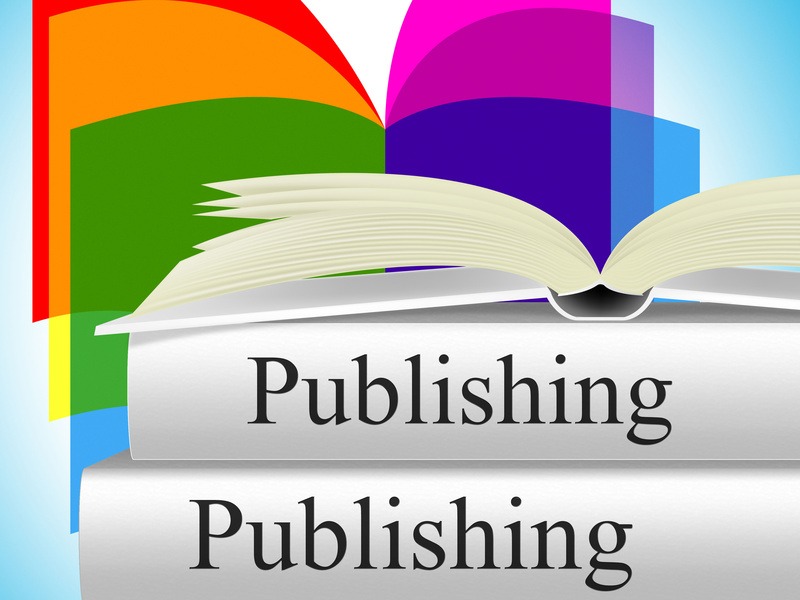Key Elements of a Book Contract.
Whether you are being traditionally published or being published by a vanity (aka subsidy) press, you will almost always be required to sign a book or publishing contract. This agreement will spell out the terms of your relationship with the entity publishing your book. Don’t be fooled into thinking it is not an important document. In fact, even if you are represented by a literary agent or a publishing lawyer, you should always read the contract carefully. Why? Because at the end of the day, it’s YOU, and not the agent or the lawyer, who will be obligated under the terms of the agreement.
This post does not provide a full detailed discussion of every element of a publishing agreement.
- Because this post would be almost as long as an actual book contract,
- Because if you are ever given a book contract, you should hire an attorney knowledgeable in the area of publishing law
12 Important Provisions in a Book Contract.
What I’ve done here is to address twelve (12) important provisions in publishing agreements. Keep in mind that there are many more. This post simply provides a general overview. Contrary to popular belief and with few exceptions, all terms of a book contract are negotiable. As with all agreements, it depends on how much leverage you have. A competent book attorney will know what can be negotiated and what terms are non-negotiable based on your situation.
- Description: At first glance, one may assume this is an unimportant provision. I assure you it is not. If this section includes a vague description of what is being published, you will most certainly have problems down the road. For example, you may think the publisher is handling just one mystery book, but your agreement states that you agree to write 5 mystery novels. Yikes! How did that happen? You didn’t read what you signed and/or didn’t ask the right questions. Take responsibility for your life!
- Grant of Rights and Territory: What territorial rights are you giving up? Are you allowing one publisher to publish your work everywhere in the world? Only in English-speaking countries? Other foreign countries? Are you being paid extra for the additional territories?
- Subsidiary Rights: For an entrepreneur-author, this is one of the most important sections in the entire publishing agreement. It determines what rights you keep and what rights you give away, such as derivative, merchandise, serial, audio, video, movie, translations, and television rights, to name a few. These valuable intellectual property rights (IP) are often overlooked until it’s too late. Many authors give away derivative rights because they don’t understand how valuable they are. Later, when they want to repurpose their content, they discover the contract they signed prohibits them from doing so.
- Manuscript Delivery: This section of the publishing agreement defines all the delivery requirements. It also defines terms for the acceptance of the manuscript, e.g., due date, format, page number, word count, and if time is of the essence. Don’t make the mistake many authors make by ignoring this provision.
- Copyright Ownership: This is another section of the publishing agreement that addresses your IP rights. Here you answer the questions, who owns the rights to your creative work, and for how long? In addition, is the publisher or the author required to register the work with the United States Copyright Office?
- Author Warranty: By far, this is one of the most important contract provisions in a publishing agreement, and rarely is this one negotiable. Here, the author represents that anything they claim to be true—is in fact true. Among the declarations an author makes is that the work they submit is entirely their own. If it is determined that the author lied or misrepresented a material fact, the consequences can be swift and severe.
- Insurance Provisions: Insurance terms are defined in the agreement. Who’s covered under the publisher’s insurance policy? Is the author required to have their own insurance? If so, how much insurance must their policy have, and is the author required to make the publisher the beneficiary? If an author and publisher are sued, does the publisher get to decide if they settle, or does the author have a say? These are important items that are often overlooked.
- Publication: Here, the author might give the publisher the right to use the author’s name, likeness, image, photo, and any other identifying factor in marketing and publicity pieces. By signing a publishing agreement with this clause, the author grants the publisher permission to exploit their image through advertisements, displays, and promotions.
- Financial Issues: These provisions include details addressing the financial responsibility of the author and the publisher. Will the author be paid an advance and if so, how much? What will be the payout? What percentage of royalties will the author receive? On what will royalties be paid? Other financial issues address accounting. When does an author get paid and how often? Does the author have the right to do an audit?
- Revised Edition: Is the author required to publish a revision, and if so, by when? How much new content must be included?
- Reversionary Rights: When and if may an author get their rights back? Under what conditions? What material does that include and at what cost? How is out of print defined?
- Termination: This section spells out the terms on which both parties can terminate the publishing agreement. What penalties must an author pay if they terminate before they fulfill their obligation under the agreement e.g., repay advance?
Take-Aways.
- Get help from a literary agent or a publishing lawyer before agreeing to any book deal you are offered
- Ask questions and make sure you REALLY understand what you are agreeing to
- Make sure the work you claim is yours is, in fact, work you created
- Writers Digest is a great resource for

Francine D. Ward
Attorney-At-Law, Author, Speaker
Follow Francine:
Don’t miss Francine’s Latest Blogs:
- What is a Habit?As we enter springtime, you may feel far away from your New Year’s resolution. That may be because of the success rate of NYE resolutions. In fact, January 17 is… Read more: What is a Habit?
- Common Contract MistakeCommon Contract Mistake #1. Not Having Written Agreements with EVERYONE You Do Business With. Common contract mistake. Without question, the most common contract mistake is not having the terms of… Read more: Common Contract Mistake
- AI and PatentsAI and Patents. Understanding Patent Law in the Age of AI. Patents, along with Copyrights, Trademarks, Trade Secrets, and Rights of Publicity, are one of the five areas of practice… Read more: AI and Patents
- Effective Goal SettingSetting Goals. It’s that time of year, time to plan for effective goal setting. A time when some of us start thinking about goals for the upcoming year. If you… Read more: Effective Goal Setting
- Indemnify AI UseBeware of companies that say they will indemnify AI use, that they will pay ALL the legal costs incurred by customers using Generative AI services (like ChatGPT, CoPilot, or Bard).… Read more: Indemnify AI Use












